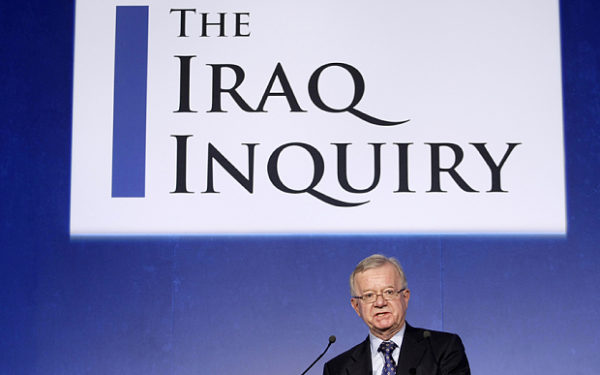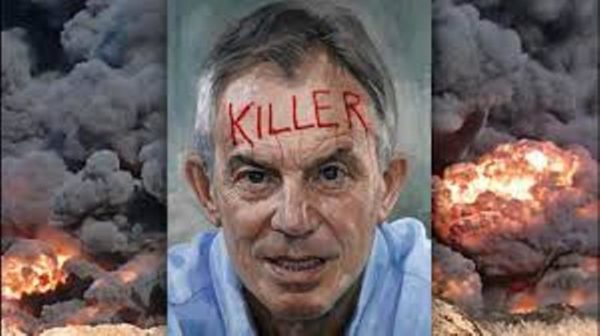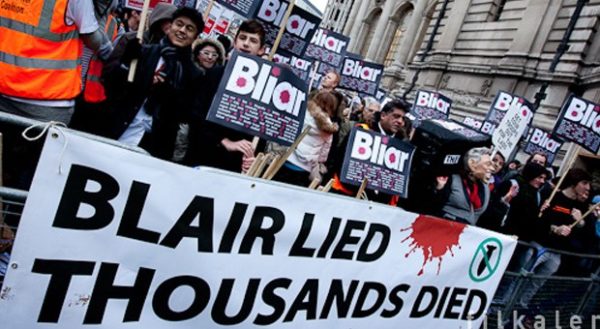
On July 6 2016, the United Kingdom published the long awaited public inquiry regarding the country’s involvement in the 2003 war in Iraq led by the United States. The inquiry was announced on June 15 2009, by former Prime Minister Gordon Brown.
The Inquiry, chaired by Sir John Chilcot, has become popularly known as the Chilcot Report. When the Chilcot Report was published, BBC News described it as “damning.” The Guardian added that it is “crushing verdict.” The Telegraph also wrote that it is “scathing.”
The Report was very critical of the actions of the British government, and the military in the war. The man who led the country to the war, Tony Blair, is said to have discarded all pretence at cabinet government, subverted the country’s intelligence agencies, and making exaggerated claims about threats to Britain’s national security.
The Report unequivocally stated that in the run-up to the war, peaceful diplomatic options to avoid instability and Weapon for Mass Destruction proliferation had not been exhausted, and that the war was therefore “not a last resort,” as the then leader of Iraq, Saddam Hussein, did not pose an immediate threat.
Since the report was published, many human rights activists have repeated their earlier calls to have Mr Blair prosecuted for war crimes committed in Iraq.
In reaction to these calls, the International Criminal Court (ICC) has announced that it will soon start gathering evidence in order to prosecute British soldiers who committed abuses amounting to war crimes during the war. On July 4 2016, the Office of the Prosecutor of the ICC issued a statement refuting a news story published by the Telegraph that the ICC could only prosecute British soldiers who committed abuses during the war and not the leader who led them to the war.
The statement said while the court does not yet have jurisdiction over the crime of aggression and the specific question of the legality of the decision to use force in Iraq in 2003, the court does have remit over war crimes, crimes against humanity, and genocide. The ICC said it will prosecute any British soldier, including even Mr Blair, if it is found that such violations were committed during the war.
In November 2015, the ICC reported that it had received 1,268 allegations of ill treatment and unlawful killings committed by British forces during the war. Of 259 alleged killings, 47 were said to have occurred when the victims were in the custody of British soldiers.
The court said its lawyers will comb through about 2.6 million word documents for evidence of war crimes committed by British troops who fought in the war.
In a statement to the Telegraph, the ICC said it had begun a “preliminary examination” of claims of abuse by British soldiers from human rights lawyers on behalf of Iraqi victims.
A spokesperson for the Office of the Prosecutor said: “We will take note of the Chilcot report when released in the context of its ongoing preliminary examination work concerning Iraq/UK. A preliminary examination is not an investigation but a process aimed at determining whether reasonable basis exist to open an investigation.”
Human rights activists made many allegations regarding the unlawful killings of Iraqi civilians by American and British troops during the war.
In the United Kingdom, a domestic investigative mechanism called the Iraq Historic Allegations Team, has fielded 3,363 cases since it was founded in 2010. 325 of these cases involved unlawful killings of Iraqi nationals by British troops. According to recent figures obtained by the Guardian, a further 1,343 stem from allegations of ill treatment.
A professor of law at the University of Warwick, Andrew Williams authored an account of the brutal killing of an Iraqi civilian named Baha Mousa. Mousa’s case gives a damning insight into the atrocities committed by British soldiers during the war. Mousa is said to have been a hotel receptionist during the war. He died while in the custody of British soldiers in September 2003. He suffered 93 injuries while in custody before his death. This case led to the sole prison sentence for a British soldier named Cpl. Donald Payne. Payne had pleaded guilty to inhumane treatment of Mousa. He only served just a year in prison. All other members of the British military tied to the case were acquitted.
Human rights activists are hoping that if the ICC begins the prosecution, all these soldiers including Mr Blair will be sent to the court to account for their crimes.
You want to support Anonymous Independent & Investigative News? Please, follow us on Twitter: Follow @AnonymousNewsHQ
This article (Justice: ICC to Prosecute British Soldiers for War Crimes Committed in Iraq, Likely to Include Tony Blair) is a free and open source. You have permission to republish this article under a Creative Commons license with attribution to the author and AnonHQ.com.







